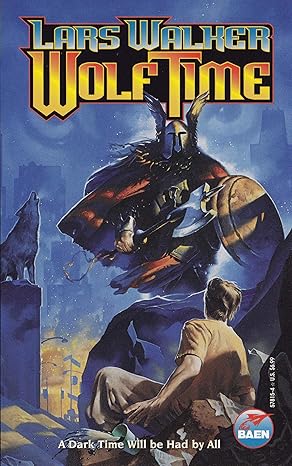
The author Neil Gaiman has been in the news in recent months, though I myself, incisive social observer that I am, was unaware until recently, and learned about it through Facebook. It appears there are a number of plausible accusations against him of inappropriate and coercive sexual acts with women.
Of course he’s legally entitled to the assumption of innocence. I have nothing to say about that. He is not a Christian, so my criticism wouldn’t mean much.
But I personally have been against Gaiman a long time, for purely private and petty reasons.
Goes back to 2001, when the man published a book called American Gods (I won’t link to it, because I’m small-minded) which dealt with the Norse god Odin appearing in the modern world. It was a huge bestseller.
I, on the other hand, had had a book published by Baen Books, Wolf Time, in 1999. It dealt with the Norse god Odin in the modern world too. This book was highly spoken of by my friends.
I have ever since held the bitter opinion that American Gods smothered Wolf Time. That there was only room on the market for one book about Odin in the modern world, and Gaiman had opportunistically grabbed that spot.
This argument is weakened by the fact that my book actually came out two years earlier and had had plenty of time to get traction, if traction was to be had.
But in my perception, the books came out in the same time window. My perception, as is so often the case, was wrong.
Still, I held a grudge against Neil Gaiman.
This may be a major reason why I turned down the opportunity to meet him when I had a chance.
I have a friend, retired now, who was a limo driver in Minneapolis. He used to regale me with stories of the celebrities he’d driven (Garrison Keillor was reserved but thoughtful enough to buy him lunch. Prince was positively standoffish, and a bad tipper as well. Cheryl Teigs was sweet). One day he called me and asked if I’d ever heard of Neil Gaiman. He was driving Gaiman around that day (the author was living in Wisconsin at the time) and could introduce me.
Part of my reluctance was just not wishing to be a fan boy, especially since I’d only read American Gods of his works and hadn’t loved it. I figured it would involve just a quick handshake and hello during a signing.
Later I learned that my friend had actually gotten quite close to Gaiman, and watched his kid while he was doing his signing. I probably could have had a real conversation with the guy. Shmoozed with a genuine industry player. Networked.
Learning that, I figured I’d missed an opportunity.
Now I guess it was just as well.
